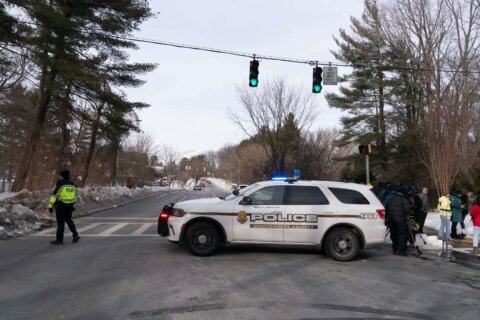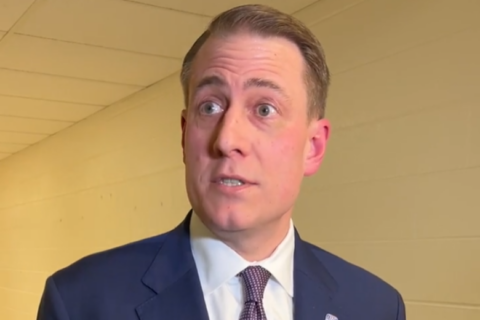WASHINGTON — Police officers throughout the area are beginning to wear body cameras, as departments from suburban Maryland to northern Virginia start pilot programs, experimenting with their uses.
Montgomery County is the latest to put the cameras to the test.
“I spent my first week with a body camera and I got to tell you it takes some getting used to,” says Montgomery County police chief Tom Manger.
Manger is among more than two dozen officers who volunteered to wear body cameras in a test-program that will include up to 100 officers and last until year’s end.
D.C. police officers have a body camera test program underway. Prince William County is expected to begin testing next month. Fairfax County is developing a test plan and Prince George’s County Police could be testing body cameras this fall.
Following the police shooting of an unarmed man in Ferguson, Missouri last year, President Barack Obama promised federal aid to equip police nationwide with body cameras. Both Maryland and Virginia legislatures are developing rules for police use of the cameras.
Chief Manger says the first week of testing in Montgomery County was a real eye opener.
“We are learning, it’s an interesting dynamic,” Manger says.
Officers equipped with the cameras were dispatched to a Germantown shopping mall to launch a search for a missing 3-year-old boy.
“Of course time was of the essence, there was a sense of urgency,” Manger says.
But officers were instructed to alert each person being interviewed about the active camera.
“The officers said they had to spend more time explaining that the person was being recorded and some of the shop owners didn’t speak English so it took them longer to explain to them they were being recorded than it did just to say ‘have you seen this little boy?'” Manger says.
The chief also reports a reluctance on the part of some people when confronted by an officer with a body camera.
“You’ve got members of the public [that], when they find out they’re being recorded, some of them are concerned about that and aren’t interacting with the officer the way that they normally would,” Manger says.
However, Manger favors police use of body cameras. He believes their eventual use will reassure the public about policing.
“What it’s going to show is that cops are doing what they’re supposed to do the way they’re supposed to do it 99.9 percent of the time,” Manger says.








